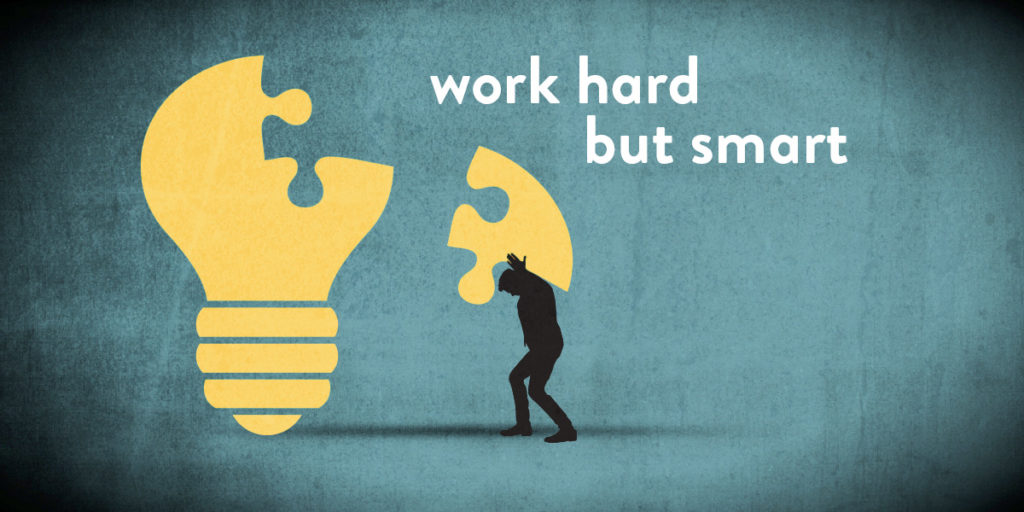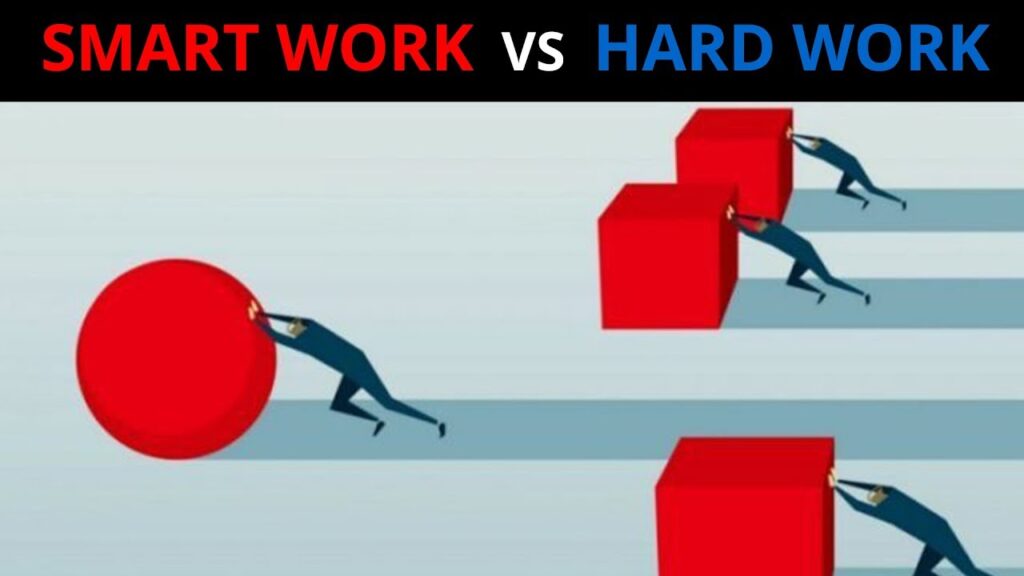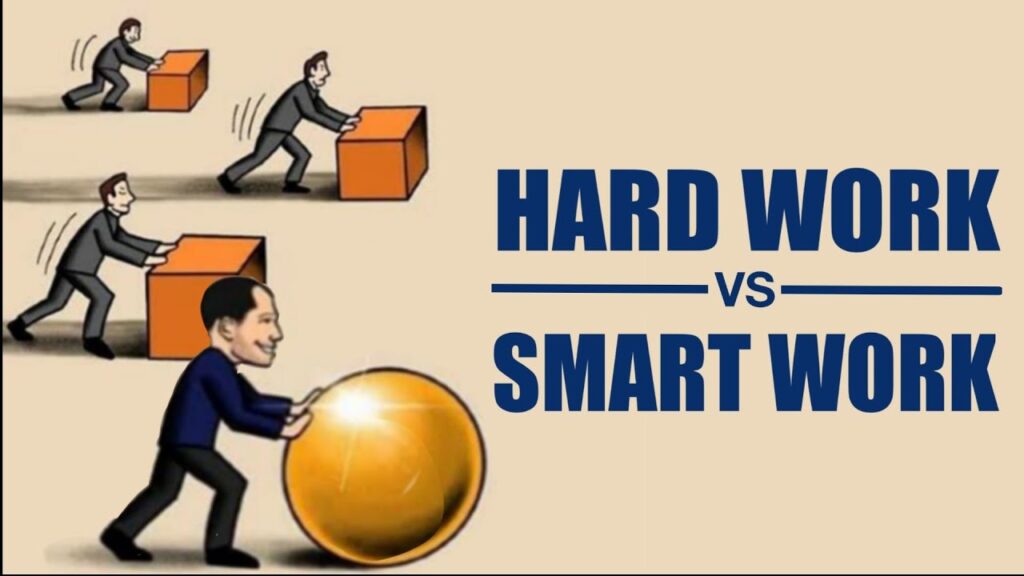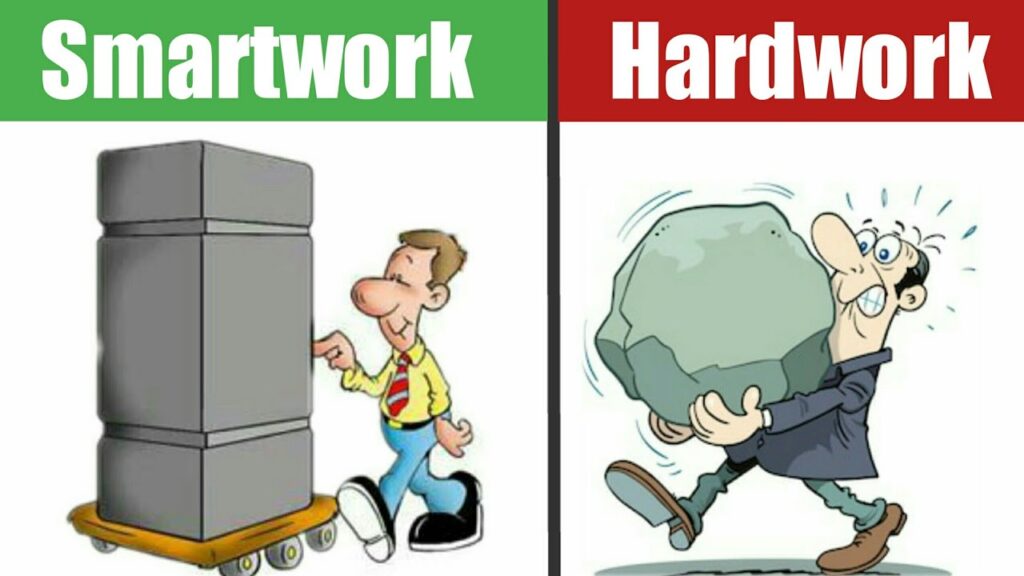Hard Work Vs Smart Work Speech or Group Discussion

Sample 1: Hard Work Vs Smart Work
Hard Work vs. Smart Work: The Great Debate
The age-old question of “hard work” versus “smart work” has ignited countless discussions and sparked passionate debates for decades. Both approaches boast dedicated advocates, each touting their unique advantages and criticizing the shortcomings of the other. Today, we delve into the heart of this debate, exploring the strengths and weaknesses of each philosophy to determine which reigns supreme in the pursuit of success.

Hard Work: The Grit and Grind
Proponents of hard work champion the virtues of dedication, perseverance, and sheer effort. They believe that consistent exertion, even in the face of adversity, is the ultimate key to achieving goals. They point to countless examples of individuals who have overcome incredible obstacles through sheer determination and tireless effort.
The benefits of hard work are undeniable. It fosters discipline, builds mental fortitude, and hones skills through focused practice. It instills a deep sense of accomplishment, earned through sweat and toil. Additionally, hard work often leads to a deeper understanding of oneself and one’s capabilities, fostering a sense of self-reliance and confidence.
However, critics of hard work argue that it can be inefficient and unsustainable. Blindly pushing through challenges without strategy can lead to burnout, exhaustion, and ultimately, reduced productivity. Additionally, focusing solely on quantity over quality can lead to subpar results and missed opportunities for improvement.
Smart Work: The Efficiency Edge
Advocates of smart work emphasize the importance of strategy, planning, and maximizing efficiency. They believe in working smarter, not harder, prioritizing tasks, and leveraging tools and technology to achieve optimal results with minimal effort.
Smart work offers several advantages. It allows for a more balanced approach to work, promoting well-being and reducing stress. It also fosters creativity and innovation, as individuals are encouraged to think outside the box and find new and improved ways to achieve their goals. Additionally, smart work often leads to a more collaborative environment, where individuals leverage their collective strengths and expertise to achieve success.
However, critics of smart work argue that it can lead to a lack of focus and commitment. An overreliance on shortcuts and automation can hinder the development of essential skills and experience. Additionally, focusing solely on efficiency can sometimes lead to sacrificing quality for speed, resulting in subpar results.
Finding the Synergy
Ultimately, the debate between hard work and smart work is a false dichotomy. Both approaches play a crucial role in achieving success. The ideal approach lies in finding the perfect balance between the two, leveraging the strengths of each to create a synergistic effect.
Individuals who combine the unyielding dedication and perseverance of hard work with the strategic planning and efficiency of smart work are best positioned to achieve their goals. They are resilient, adaptable, and constantly evolving, finding new and innovative ways to work smarter and harder, ultimately reaching their full potential.
Conclusion: The Power of Balanced Approach
The true path to success lies not in blind adherence to either hard work or smart work, but in embracing a balanced approach that leverages the strengths of both. By combining the grit and determination of hard work with the strategic planning and efficiency of smart work, individuals can unlock their full potential and achieve remarkable results.

Sample 2: Hard Work Vs Smart Work Speech
The Great Debate: Hard Work vs. Smart Work
The timeless question of whether hard work or smart work reigns supreme has sparked countless debates across generations. While both approaches hold merit, the ideal path to success often lies in finding a harmonious balance between the two.
The Case for Hard Work:
- Develops Grit and Determination: Hard work instills a sense of resilience and perseverance, teaching us to overcome challenges and push through obstacles.
- Builds Discipline and Focus: Dedicated effort fosters a disciplined approach to work, improving concentration and allowing for sustained effort towards long-term goals.
- Enhances Skills and Knowledge: Through consistent practice and repetition, hard work facilitates the development of skills and expertise, leading to mastery in one’s chosen field.
- Instills a Sense of Accomplishment: Completing a task after putting in tireless effort generates a profound sense of accomplishment and self-worth, boosting motivation and confidence.
The Case for Smart Work:
- Maximizes Efficiency and Productivity: Smart work emphasizes doing the right things the right way, prioritizing tasks, delegating effectively, and utilizing tools and resources to achieve optimal output.
- Reduces Stress and Burnout: By working smarter, individuals can streamline their workflow, minimize wasted time and effort, and avoid unnecessary stress and burnout, leading to a more sustainable and balanced work-life.
- Encourages Innovation and Creativity: By focusing on strategic planning and problem-solving, smart work fosters an environment for innovative solutions and creative approaches to challenges.
- Provides Time for Learning and Development: Smart work allows individuals to dedicate time to learning new skills, expanding their knowledge base, and staying adaptable in the ever-evolving professional landscape.
The Ideal Synergy:
Instead of viewing hard work and smart work as opposing forces, it is crucial to recognize their complementary nature. The most successful individuals often integrate both approaches into their work ethic, leveraging the strengths of each to achieve greater results.
Here’s how:
- Apply Smart Work to Strategy and Planning: Utilize efficient time management, prioritize tasks effectively, and delegate responsibilities when possible.
- Apply Hard Work to Execution and Implementation: Dedicate focused effort to the prioritized tasks, ensuring high-quality deliverables and meeting deadlines consistently.
- Develop Efficiency While Maintaining Focus: Implement time-saving strategies while maintaining concentration and attention to detail to avoid compromising quality.
- Continue Learning and Skill Development: Invest time in acquiring new knowledge and refining existing skills to stay competitive and adaptable to changing environments.
By embracing both hard work and smart work, individuals can unlock their full potential, achieve greater success in their chosen field, and maintain a balanced and fulfilling work-life. This is not about choosing one over the other, but rather about finding the perfect balance and utilizing each approach strategically to achieve optimal results.

Sample 3: Hard Work Vs Smart Work Group Discussion

Hard Work vs. Smart Work: A Heated Debate
The age-old question of whether hard work or smart work leads to greater success continues to spark debate. While both approaches have their merits, the ideal path to achievement may lie somewhere in between.
Team Hard Work:
- Proponents of hard work argue that it builds character, resilience, and a strong work ethic. They believe that putting in consistent effort, even when it’s challenging, leads to mastery and achievement.
- Hard work often involves going the extra mile and exceeding expectations. It demonstrates dedication and commitment, qualities that are highly valued in many fields.
- The “can-do” attitude fostered by hard work can inspire others and create a positive work environment. It can also lead to unexpected opportunities and discoveries.
Team Smart Work:
- Advocates of smart work argue that efficiency is key to success in today’s fast-paced world. They believe in working smarter, not harder, by focusing on strategies, automation, and leveraging technology.
- Smart work emphasizes maximizing output while minimizing effort and resources. It promotes critical thinking, problem-solving, and the ability to identify the most effective path to success.
- By working smarter, individuals can achieve their goals with less stress and burnout. This allows them to maintain a healthy work-life balance and avoid the potential negative side effects of excessive hard work.
Finding the Balance:
While both hard work and smart work have their own strengths and weaknesses, the ideal approach likely lies in a combination of both.
- Developing a strong work ethic and a willingness to put in effort is crucial for any success. However, it’s important to channel that effort effectively through strategic planning, resource allocation, and utilizing available tools.
- Embracing smart work strategies can optimize efficiency and effectiveness. Automation, delegation, and learning new skills can free up valuable time and energy for higher-level tasks.
Ultimately, the most successful individuals are those who can adapt their approach based on the situation and leverage both hard work and smart work to their advantage. They understand the value of dedication and perseverance while recognizing the importance of efficiency and strategy.
Disclaimer:
This is a sample debate and does not represent an endorsement of either hard work or smart work. The best approach for you will depend on your individual circumstances and goals.

Hard Work Vs Smart Work
how did you find this debate or group discussion on Hard Work Vs Smart Work . What will you prefer Hard word or Smart Work
Thank you
For more articles you can visit Stationvidya.com or you can check https://stationvidya.com/importance-of-education-essay-in-250-words/
Leave a Reply